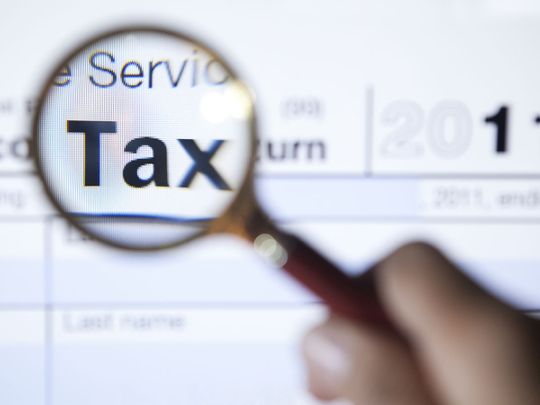UAE to introduce 9% corporate tax on business profits from June 1, 2023
01 February 2022 – Gulf News – www.gulfnews.com

In a major push to update its corporate tax structure, UAE will introduce a a tax on business profits from June 1, 2023.
Dubai: the UAE Ministry of Finance will introduce a corporate tax on business profits on financial years starting on or after June 1, 2023. The Ministry also confirmed that there will be no tax on profits of up to Dh375,000, in a move that will help small businesses.
No corporate tax will apply on personal income from employment, real estate and other investments, or any other income earned by individuals that do not arise from business or other forms of commercial activity, licensed or otherwise.
* As an international headquarter location, a UAE business will be exempt from paying tax on capital gains and dividends received from its qualifying shareholdings. And foreign taxes will be allowed to be credited against UAE corporate tax payable.
* The UAE corporate tax regime will have “generous” loss utilisation rules and will allow UAE groups to be taxed as a single entity or to apply group relief in respect of losses and intra-group transactions and restructurings.
* The UAE corporate tax regime will ensure the compliance burden is kept to a minimum for businesses that prepare and maintain adequate financial statements.
* Businesses will only need to file one corporate tax return each financial year and will not be required to make advance tax payments or prepare provisional tax returns. Transfer pricing and documentation requirements will apply to UAE businesses with reference to the OECD Transfer Pricing Guidelines.
“The UAE is moving gradually from a non-tax environment to a tax environment – that will give the UAE Government additional income to fund the country’s development activities,” said Rizwan Sajan, Chairman of Danube Group. “This comes about four years after the introduction of VAT – on January 1, 2018.
Across the board tax
Until now, UAE’s corporate taxes only applied to banks and insurance companies. They are taxed at 20 per cent. Individual emirates have already impose a limited corporate tax on enterprises engaged in exploration and production of oil and gas at rates up to 55 per cent.
Although personal income tax is still absent in the Gulf, many countries have in recent years rolled out VAT (value added tax) on individuals and business activities, with Saudi Arabia tripling the rate to 15 per cent last year.
The latest UAE announcement should be seen as a natural progression to leading economies of the world wanting to set a minimum tax on corporates. It is intended to stop the practice of corporate titans – especially US technology ones – having skeletal operations in low tax regime and then paying little on their profits in their home country.
– Justin George Varghese
The effort at a minimum corporate tax cutting across jurisdictions gained traction in the months after the pandemic broke out and nations were facing severe economic disruptions. The UAE’s latest move “brings the UAE’s corporate tax regime to be in sync with global benchmarks,” said a consultant.
The GCC remains an attractive jurisdiction for foreign investment due to favorable tax regimes in most countries in the region. However, a number of reforms have been underway to create new revenue streams while reducing dependence on mainstream sources of revenues in the region. In some countries value-added taxes have already been announced, while in other countries, different forms of taxes are in place.
According to Jonathan Davidson, founding Partner at the DIFC law firm Davidson & Co., “As the UAE grows as an economy and takes a larger role on the international stage, it makes sense for the authorities to take steps to put in place a transparent system of corporate taxation.
“It is interesting to note that companies trading in free zones and not conducting business in onshore UAE will continue to be exempt. With the digitalisation of government services over the last few years, the administrative burden to businesses to file corporate tax returns will be significantly less than would have been the case in the past. This, seemingly, makes this the right time in the economy’s maturity to take a step that has already been done by other GCC countries.
“The regime will pave the way for the UAE to address the challenges arising from the digitalisation of the global economy and the other remaining BEPS [Base Erosion and Profit Shifting] concerns. And execute its support for the introduction of a global minimum tax rate by applying a different corporate tax rate to large multinationals that meet specific criteria set with reference to the above initiative.”


